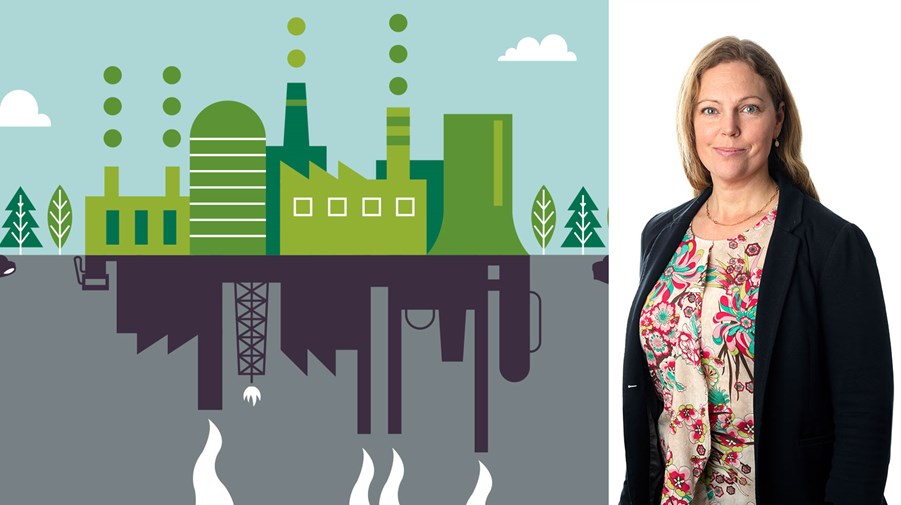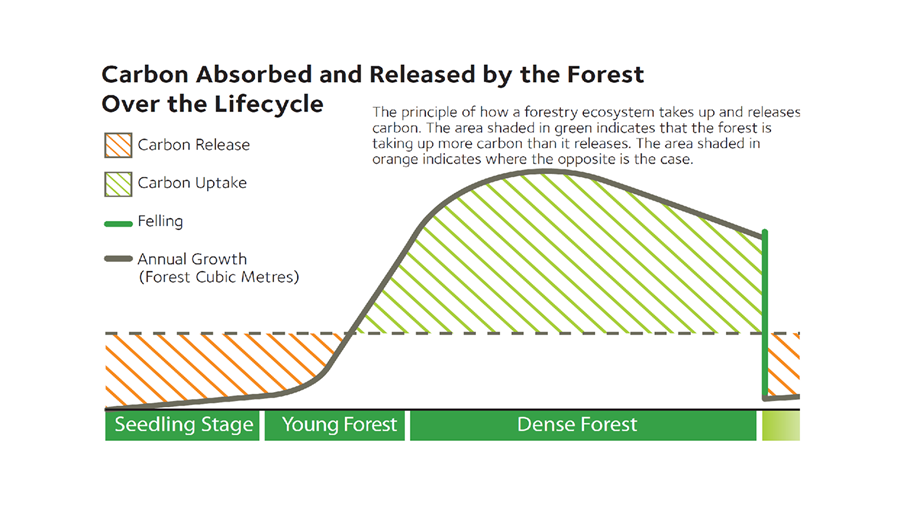
The European Commission has communicated a new action plan to reduce emissions and pollution. The Swedish Forest Industries welcomes the vision, “a world where pollution is reduced to levels that are no longer harmful to human health and natural ecosystems”, but asks for some partial clarifications.
“The vision is completely in line with the industry's own sustainability work, now it is important to ensure that the measures also work in reality”, says Helen Sjögren, environmental director at the Swedish Forest Industries.
On May 12, the European Commission announced its plan in the direction of "Zero Pollution for Air, Water and Soil", part of the green deal. The Commission presented interim targets for 2030, which include, among other things, nutrients and of microplastics released to water, transport noise and municipal waste.
Helena Sjögren, environmental director at the Swedish Forest Industries, comments on the proposal;
“We welcome the Commission's vision for 2050, 'A healthy planet for all', which everyone probably agrees on. The forest industry is playing an increasingly important role in the work for a more sustainable and healthy society. Among other things we can contribute with renewable climate-smart products that people need in their everyday lives.
The communication defines a clear hierarchy of measures, which the Swedish Forest Industries welcomes. Preventing is a priority, minimizing is the second-best action, remediate and compensate comes last. The European Commission also wants, according to the action plan, to tighten up the implementation of environmental legislation.
“A stricter implementation can create a more level playing field between businesses in different European countries. At the same time, regulations must not be introduced too rigidly, then they risk standing in the way of the positive development instead”, says Helena Sjögren.
With regard to national implementation, the Commission mentions in particular the Water Framework Directive and the goal of achieving what is known as "good status". Good water quality is of course a priority issue for the forest industry. To maintain good status, all parameters need to at least reach the "good" level.
Some parameters impossible to achieve
“But some of these parameters are more or less impossible to achieve no matter what the industry does. They are sometimes formulated too narrow, and do not take into account local conditions”, says Helena Sjögren.
“The cooperation around water issues is based on us working together towards a common goal. But we also want to emphasize the holistic perspective because we partly work in different conditions”, says Helena Sjögren.
The forest industries agree that the Industrial Emissions Directive, IED, is the main instrument for regulating industrial emissions to air, water and land. It is a well-functioning instrument that makes the regulations similar throughout Europe. The businesses that are included need to use best available technology (BAT).
Focus on industrial emission
The announcement states that the IED will be revised, this in itself is not new. But the forest industry wants the directive to continue to focus on industrial emissions and not be extended to areas that are already regulated in other ways. This applies above all to climate, which is regulated via the emissions trading system (EU ETS), but also to energy use, which is governed by other directives. What is considered to be the best available technology for regulation (BAT) is already regularly reviewed so that the assessments are constantly updated with new technology.
“Innovation and technological development are necessary for us to achieve the environmental goals and transition to a fossil-free society. I am positive about more investments and collaboration for innovation in environmental technology, but it is not certain that it is most effective to do so within the framework of IED”, says Helena Sjögren.
She concludes by reiterating that the Forest Industries' attitude to the action plan and its vision is very positive.
“Ecological, social and economic sustainability are cornerstones of Swedish forestry. We now look forward to continued close cooperation with the Commission to move forward in the practical work at EU level”.


